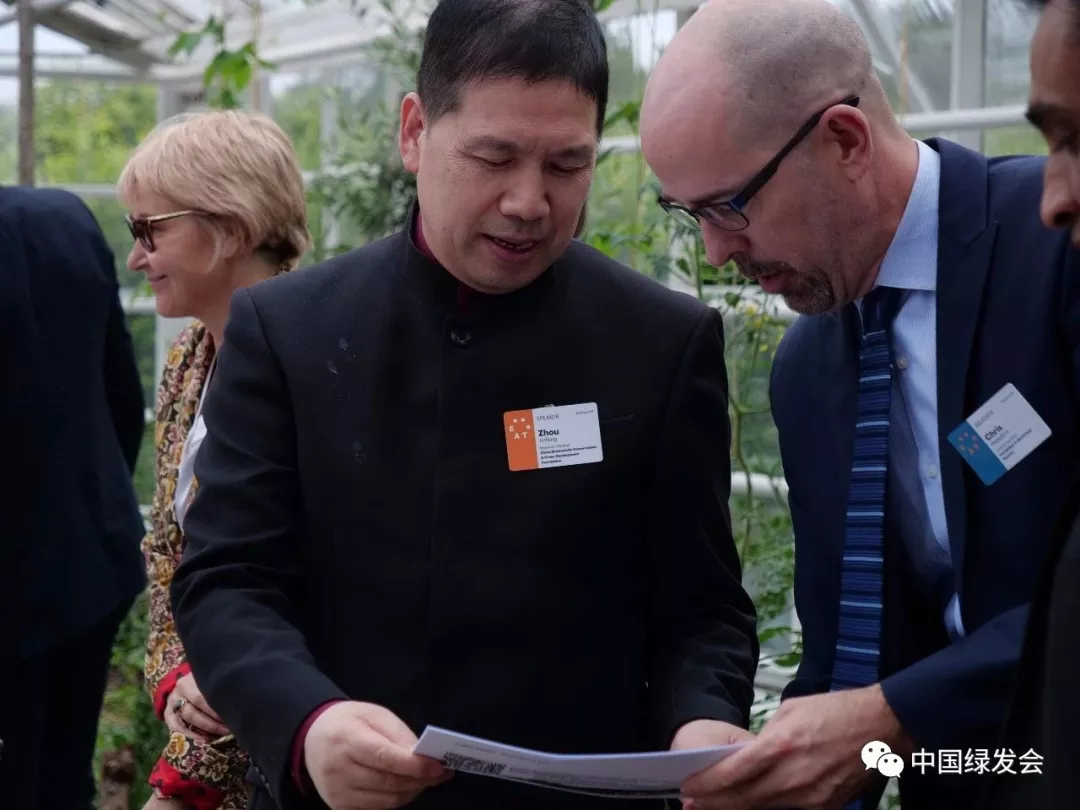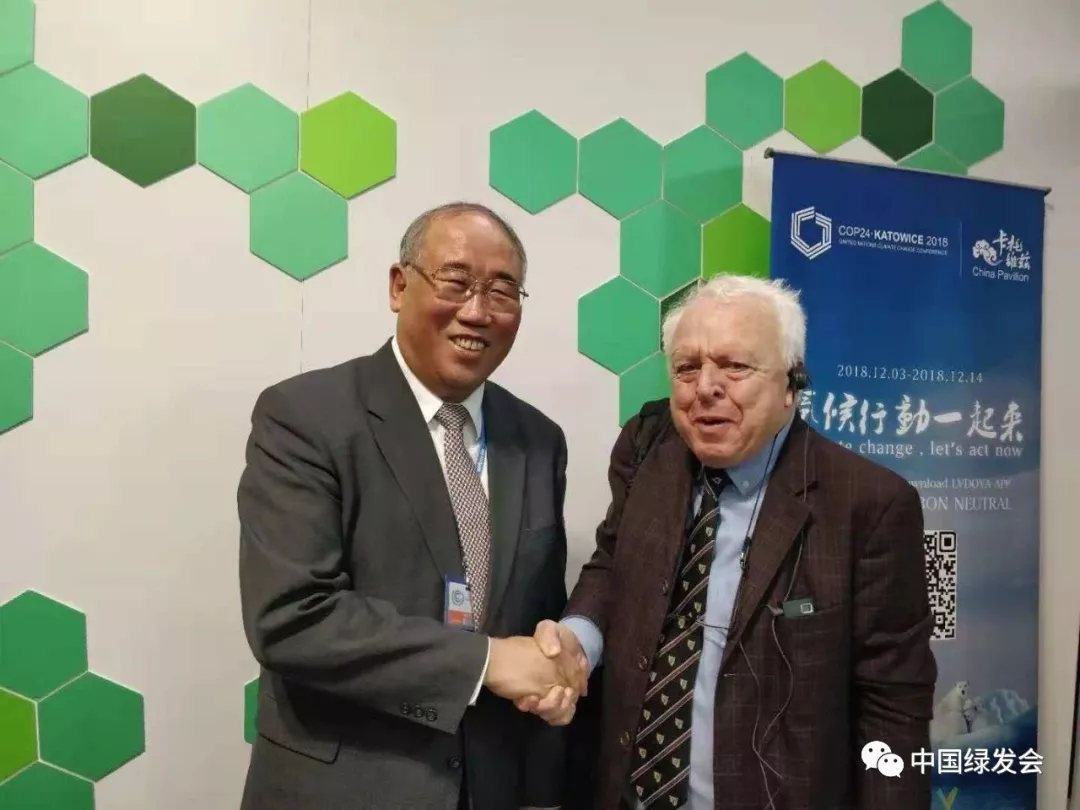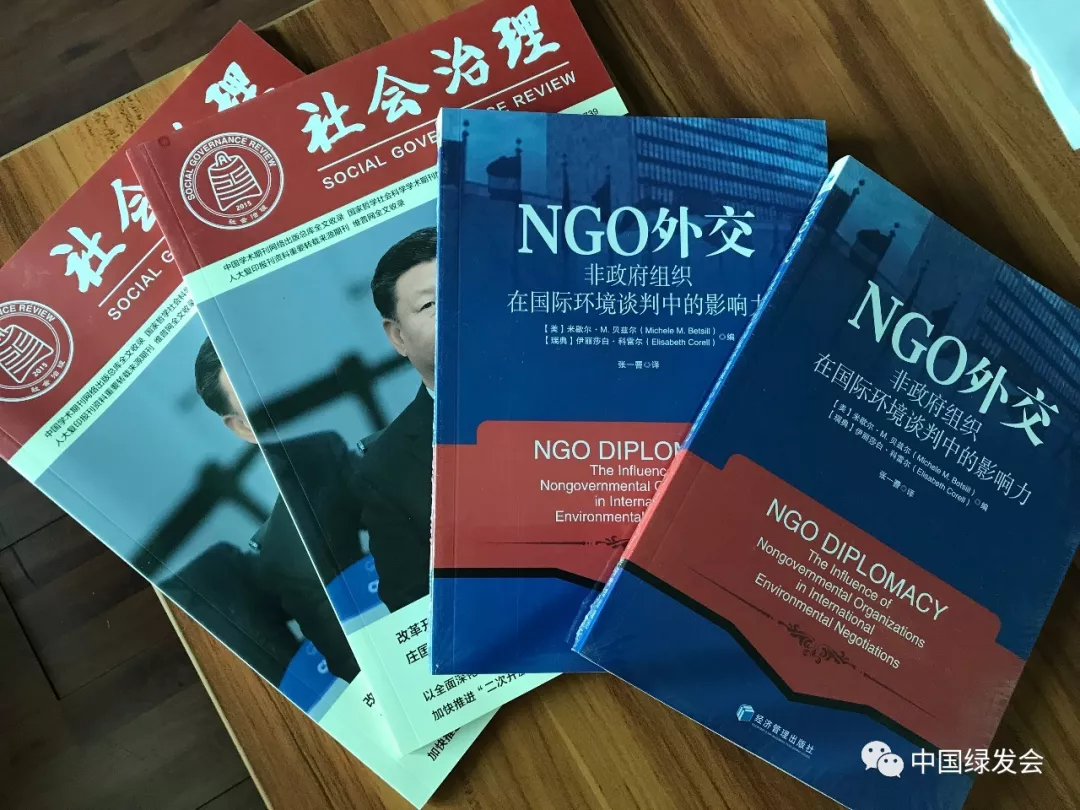On June 25th, Ma Yong, the deputy secretary general of China Biodiversity Conservation and Green Development Foundation (CBCGDF), was invited by the Chinese Society of Environmental Sciences (CSES) to attend an expert seminar on "The Influence of NGOs in the International Cooperation on Climate Change" (hereinafter referred to as the "topic"). Representatives from relevant universities, research institutes and social organizations such as the CBCGDF, Beijing Normal University, and World Resources Institute attended the meeting and held special discussions. Deputy Secretary-General Ma Yong gave a systematic introduction to the work that related to climate change in the CBCGDF and made recommendations on the project topics.
Deputy secretary-general Ma Yong said that non-governmental organizations are an important force in promoting economic and social development, participating in international cooperation and global governance, and are important contributors to the establishment of a discourse system with Chinese characteristics and possible conflicts in the future. The CBCGDF has been committed to this for a long time. Ma Yong introduced the work of the CBCGDF on climate change from five aspects:
The first aspect is to carry out international exchanges and cooperation. Primarily, we need to develop mechanisms for international exchanges and cooperation. The CBCGDF has set up an international working committee, which had the former deputy secretary-general of the United Nations and relevant leaders as leaders, and invited experts from relevant international fields to serve as consultants for the CBCGDF, guiding and participating in the internal work. At the same time, a special international department is set up to recruit international students with overseas study experience and to be responsible for international liaison. The establishment of the "going-out" office will cooperate with the implementation of the "One Belt, One Road" initiative in China. At the same time, international students who study in China, Chinese volunteers who studying and working abroad, and those foreign university students are also included in the volunteer team of the CBCGDF. While providing them with more opportunities to participate in the field of ecological environment protection in China and other countries, they are also guided to become friendly messengers of environmental protection exchanges between China and foreign countries, and also build more interactive bridges. The cost is not high, and they benefit a lot from each other.
Secondly, is the "going-out" policy, preaching good stories of China and spreading positive voices of China. Zhou Jinfeng, the secretary-general of the CBCGDF, he took the lead of “going-out” in many international organizations, including the executive board at Club of Rome, the vice chairman of World Green Design Organization (WGDO), the expert group of OECMS Global Technical Experts at the UN Convention on Biological Diversity (CBD), and the member of the World Environment Convention expert group, etc. At the same time, the CBCGDF is also the Chinese member of the International Union for Conservation of Nature (IUCN), the UN Global Compact, the Global Genome Biodiversity Network (GGBN); and the observer of the Convention on International Trade in Endangered Species of Wild Fauna and Flora (CITES), International Treaty on Plant Genetic Resources for Food and Agriculture (ITPGRFA), and Intergovernmental Science-Policy Platform on Biodiversity and Ecosystem Services (IPBES).
We take every possible opportunity to participate in international conferences, inter-regional meetings and even the activities of other organizations. On the one hand, it publicizes the work of the Chinese government on climate change and ecological protection. On the other hand, it also talks about the work of the CBCGDF as an NGO to innovate in biodiversity conservation and promote green development. Thirdly, is the "please come in" policy. The CBCGDF will set up a platform and invite important social organizations to join us on holding conferences. For example, in 2016, the CBCGDF held a seminar on "Ecological Belt & Road and CMS (Convention of Migratory Species)". In March and July 2019, the CBCGDF held a seminar with the Food and Agriculture Plant Genetic Organization of the United Nations to promote the conservation and sustainable use of plant genetic resources for food and agriculture in China, and also promote the ecological security and sustainable development of food and agriculture.
The second aspect is to help promote energy conservation and emission reduction. After more than 40 years of development in China, the industrial structure with high energy consumption, high pollution, and high emissions bring a greater impact on climate change response work. As a social organization, we are willing to provide technical assistance to relevant enterprises. On the one hand, building a platform to connect with advanced technologies for pollution control, energy conservation, and emission reduction, and also establish cooperative links with enterprises that have the ability to reduce and eliminate atmospheric pollutants as well as reduce pollutants. On the other hand, we are also conducting research on issues such as widespread problems with disposable supplies and take-out platforms. For example, we promoted Hainan's complete ban on the use of disposable items. At the same time, we actively promoted the construction of ecological civilization in some areas, such as we are entrusted to a city in Inner Mongolia to do ecological civilization construction planning. In addition, we are also highly concerned about the illegal trade of timber. It is very prominent in particular parts of China and has received extensive attention from the international community, which seriously affect the international image on climate change of China.
The third aspect is to carry out public education. The CBCGDF actively advocates green consumption and assists the Ministry of Ecology and Environment to formulate guidelines for citizens' environmental behavior. Organizing special activities to publicize and educate on the issues related to climate change, especially to change the awareness of the relevant government departments principals and make them pay more attention to climate change issues. At the same time, the CBCGDF will continue funding the publicity work of volunteers, such as funding translation and publishing "NGO Diplomacy", which has the important reference value for the study of NGOs' influence on this topic. In addition, we have also organized the China-US Air Pollution Control Forum, and invited former US Vice President Al Gore to give a speech, and also promoted cooperation in atmospheric management.
The fourth aspect is to take legal action. The CBCGDF will conduct environmental public interest litigation in accordance with the Environmental Protection Law for those enterprises and institutions that involve air pollution and harm public interests. Taking legal action to regulate their environmental behavior, reduce air pollution emissions, and urge them to meet legal production criteria. For instance, legal actions should be taken to pollutants emission from glass enterprises, automobile exhaust pollution, and even "abandon-wind" and "abandon-light". As a social organization, the CBCGDF will actively participate in the main battlefield of national environmental protection and assist our government in achieving environmental protection goals.
The fifth aspect is legislative promotion. By taking advantage of its legal work, the CBCGDF actively puts forward legislative proposals to promote environmental protection work concerning protection legislation including climate change. For example, the law of air pollution control, the law of water pollution control, the law of fixed waste control and so on. We organized expert seminars and put forward suggestions for the reference of decision-making bodies.
Deputy Secretary-General Ma Yong emphasized that the research topic of non-governmental organizations influence in international cooperation on climate change is a great opportunity to reflect the dilemma and status quo of NGOs going abroad. Yong suggested that:
Firstly, through the project, it is recommended that the relevant national ministries and commissions can support and fund the relevant social organizations to go out and truly tell the good stories of China. In this regard, social organizations really need to be supported.
Secondly, after the establishment of the central environmental protection supervision mechanism, it has made outstanding achievements in promoting pollution control and eliminating the destruction of the ecological environment. In particular, it has achieved remarkable results in terms of restructuring, promoting transformation and reducing pollutant emissions. However, if there are social organizations participated in these aspects and promoted them in the form of third parties, they will get twice the result with half the effort. It is hoped that our country will pay enough attention in this regard.
Thirdly, the environmental public interest litigation in social organizations has entered a relatively mature stage, especially the need to form a joint force with the administrative law enforcement of environmental protection departments in order to achieve the best results. Therefore, it is suggested that the Ministry of Ecological and Environment actively support social organizations to initiate environmental public interest litigation, encourage the whole society to participate in environmental protection, and promote greater achievements in the construction of ecological civilization in China.



(Photo credit: CBCGDF)
Original Chinese article:
http://www.cbcgdf.org/NewsShow/4854/9043.html
By / Xue Tongtong
